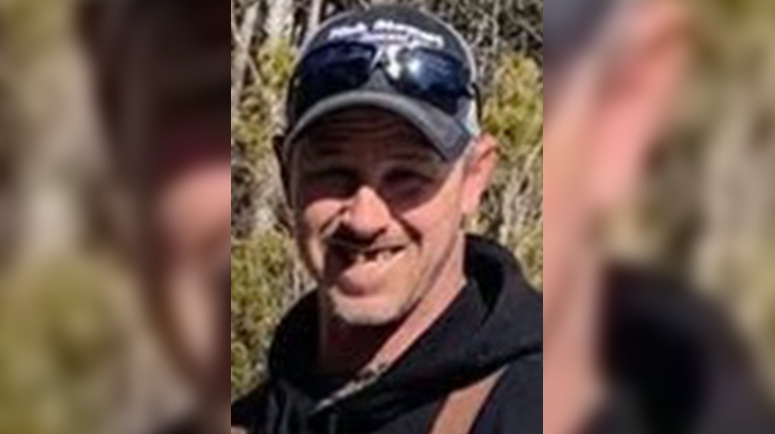‘Stubbornly high’ Nova Scotia suicide rate prompts calls for prevention strategy
Posted Sep 14, 2023 05:00:00 AM.
Last Updated Sep 14, 2023 05:16:00 AM.
HALIFAX — Nova Scotia’s suicide rate has remained “stubbornly high” since 2012, and the province needs a comprehensive strategy to tackle the problem, says a Halifax-based clinical psychologist.
The rate of suicide in Nova Scotia has been rising for more than 20 years and reached a crisis level in 2022, when 155 people in the province killed themselves, Dr. Simon Sherry, of the Crux Psychology clinic and the department of psychology and neuroscience at Dalhousie University, said in a recent interview.
“We need government leadership to create a targeted and co-ordinated approach to the prevention of suicide,” Sherry said.
Over the last decade, suicide deaths per 100,000 people have increased from 12.2 in 2013 to a record high of 15.6 in 2022, according to statistics updated this month by the provincial government. A recent anomaly in the trend occurred during the COVID-19 pandemic year of 2020 when the rate fell back to 12.3 before increasing again to 14.8 in 2021.
Over the last year the data indicates that 144 men took their lives, with the rates highest between men aged 45-59.
Sherry said he could only speculate as to why the trend in men is occurring, but he added that it seems to be happening across North America.
“It’s hard to nail down a cause for suicide,” he said. “Scientists have been studying it quantitatively for more than a century and strong predictors for death by suicide are elusive.”
He said the province should create an evidence-based prevention strategy similar to that in Quebec, where the government has succeeded in dropping that province’s rate from the highest in the country to below the national average. “In particular, they were able to reduce the rate among youth,” he said.
”One reason the rate may be even lower in Quebec is because they have launched government co-ordinated suicide initiatives.”
Kelly Mae Mitchell, whose 14-year-old daughter Aidaen took her own life in 2019, isn’t shocked by the latest statistics in Nova Scotia. Mitchell is director of Aidaen’s Place Youth Wellness Centre, in Yarmouth, N.S., which she opened following her daughter’s death, to provide life skills programs and community activities for children aged nine to 17.
“We are not seeing any changes, any improvements or added resources at the surface level,” Mitchell said. “The kids go to outpatients because there is nowhere else to go and that doesn’t help. There’s still long wait times to get into any type of assistance as far as mental health resources go.”
Mitchell agrees that a provincial prevention strategy would help, but says there needs to be a “societal shift” in attitudes toward mental health and suicide prevention.
“There’s so much that needs to be done by everyone — by family members, by schools and by friends — there’s just so much that makes that entire picture,” she said. “There’s not one thing that’s going to fix it, there are so many pieces to that puzzle.”
In January 2020 Nova Scotia released a framework to prevent and reduce the risk of suicide, suggesting the government collect better data and strengthen community-based support, but the province has yet to develop a strategy to do that.
Instead, health officials who appeared before the legislature’s health committee on Tuesday highlighted efforts aimed at creating universal access to mental health support. They said people who are at highest risk of suicide can get round-the-clock support available seven days a week from the Provincial Mental Health and Addictions Crisis line. There is also a mobile crisis unit that operates in the Halifax area, and new mental health day hospitals for those needing intensive services, they said.
Kathleen Trott, associate deputy minister of addictions and mental health, told the committee that the new data on suicide “speaks to the need for us to continue focus on increasing access to supports.”
“The last few years have been difficult for Nova Scotians, and we have seen a large increase in demand and in acuity and complexity,” said Trott. “It’s a challenge for sure.”
Health officials testified at committee that there are challenges in recruiting psychiatric staff. Position vacancies, they said, rose to 22.3 per cent in July from 20.3 per cent a year earlier.
Sherry applauds the government’s efforts but says more needs to be done.
“It’s going to be hard to solve this problem one psychiatrist, psychologist or social worker at a time,” he said.
—
If you or someone you know is thinking about suicide, support is available 24/7 by calling Talk Suicide Canada (1-833-456-4566) or texting 45645 in the evenings. Residents of Quebec can call 1-866-APPELLE (1-866-277-3553) or visit suicide.ca for support by text and online chat. In Nova Scotia, residents can call the provincial mental health crisis line at 1-888-429-8167 or by dialing 911.
—
This report by The Canadian Press was first published Sept. 14, 2023.
Keith Doucette, The Canadian Press








